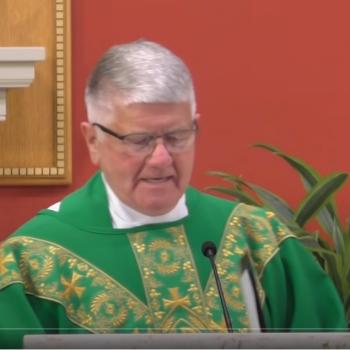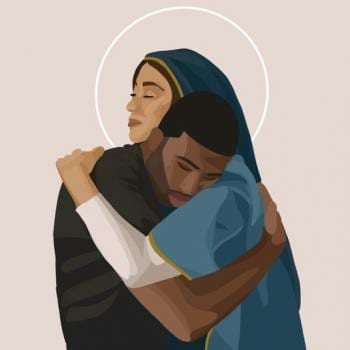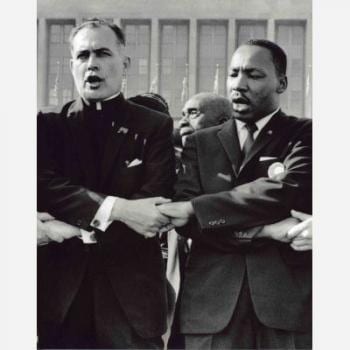“Christ is at once rich and poor: as God, rich; as a human person, poor. Truly, that Man rose to heaven already rich, and now sits at the right hand of the Father, but here, among us, he still suffers hunger, thirst and nakedness: here he is poor and is in the poor.” -St. Augustine
Christ “is poor and is in the poor,” says St. Augustine, providing a most succinct justification of the Church’s “preferential option.” Structurally, the poor share an intimate identity with Christ that demands our special solicitude, service and love. Ours is not a heroic faith, a religion for “winners” in the worldly calculus of success and failure. Rather, in the words of someone (though, I’m reliably told, not James Joyce), Catholicism means “here comes everybody.” And since most people alive, dead or yet unborn are, were or will be poor to one degree or another, it is the mission of Christians to provide them with the succor we would offer Christ.
Lately, there has arisen some dispute over whether the corporal works of mercy are intended to be strictly private and personal, or whether there is a social and political dimension to the Church’s “preferential option for the poor.” There really is no dispute. Any supposed boundary between the personal and the political is a clumsy fiction trotted out on behalf of one ideology or another. We shouldn’t tolerate that fiction when it’s offered by politicians excusing their support for abortion rights, and we shouldn’t tolerate it when it is offered by politicians excusing their abandonment of the poor. The notion that compassion and social justice is strictly a private affair has no basis in Catholic teaching. In fact, nothing about the Catholic faith is a private affair.
Working with the poor, one is quickly disabused of romantic notions about poverty. The poor are not always victims of others; often they are victims of their own undisciplined appetites. The poor, like the rest of us, are not generally noble; many wouldn’t give you the shirt off their backs, but they might take yours. Still, we are called to love and serve them, not because they behave lovably, but because they are our brothers and sisters, and because in their suffering they are Christ.
Jesus does not say “I was legal, and you clothed me,” or “I was sober and you fed me,” or “I thanked you profusely when you gave me something to drink.” Our responsibility to the poor is defined not by whether they make us comfortable, or whether we see the logic of it, but by their need. After all, “God commends his love toward us, in that, while we were yet sinners, Christ died for us.” (Romans 5:8) We were loved unconditionally before we “deserved” it. We are called to do the same.
“The mystery of the poor is that they are Jesus, and what we do for them we do for him.” – Dorothy Day











